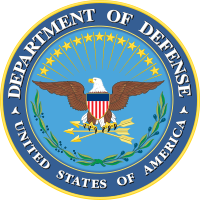Stakeholders can bring forth to advisory committees any school-related, non-personnel matters such as educational programs, resources, services, and policies.
If the issue involves an individual DoDEA employee, student or school volunteer, the DoDEA Chain of Command is the appropriate path for prompt resolution:
- Classroom Teacher
- School Administration
- Community/District Superintendent's Office
- Region Office & Administration
- DoDEA Headquarters
Parents, sponsors, guardian from DoDEA schools and full-time employees can serve as voting members on School Advisory Committees (SAC) and Installation Advisory Committees (IAC). For high schools, a student representative also serves as a voting member. These members are elected through a public election process. Non-voting members on advisory committees include the principal, installation commander or designee, and others.
Please contact your school for specific information on how to run in the next SAC/IAC election. Each year elections are held to select new members representing parents and DoDEA employees.
The size of a SAC is dependent on student enrollment numbers at that school and can range from 2 to 10 voting members.
The size of the IAC depends on the number of DoDEA schools on the military installation.
Employee relations and student conduct are matters handled by the Community Superintendent, principals, and administrative staff.
No, generally the school board for a local education agency makes the policy and rules for schools in that particular school district; the Superintendent and staff implement the school board's policy. DoDEA Advisory Committees act in an advisory capacity, providing input to the Community Superintendent and administrators in the areas of fiscal, personnel and educational policies, procedures and programs. The DoDEA District Superintendent makes final decisions on matters affecting the school district.
The statute which authorizes DoDEA defines the roles of Advisory Committees. Also, because DoDEA advisory committee members are not officers or employees of the United States as defined in the "appointments clause" of the Constitution, they may not exercise discretionary governmental authority such as taking personnel actions, expending appropriated funds, or establishing governmental policies.
The Community Superintendent and Installation Advisory Committees should always attempt to find common ground on issues. However, DoDEA Superintendents are ultimately responsible for the operation of the school district. In rare instances, a Community Superintendent may find it necessary to take an action with which the Advisory Committee(s) might not agree. The Community Superintendent should then provide the Advisory Committee with the rationale for that action. If necessary, either the Community Superintendent or the Installation Advisory Committee members may ask for assistance from the Regional Director of Student Excellence.
Yes, all SAC/IAC members receive training so they may better understand the rules which govern the operation of the SAC and the IAC.





